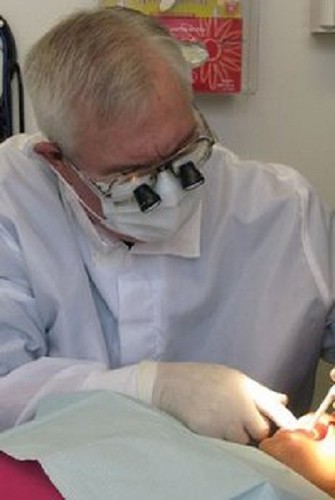
Good Morning!
As most dental practices are in the process of closing for the holidays, I wish to take this opportunity to wiish the very best of the season to everyone and a happy new year.
On to today's dentistry and health headlines:
Dentist accused of groping KOP mall employees
FTC: Dental Board Cannot Order Nondentists to Stop Whitening
“Painless” Plasma Brush Is Becoming Reality In Dentistry, MU Engineers Say
U.S. bill would create grant program for dental charities
Enjoy your morning!
As most dental practices are in the process of closing for the holidays, I wish to take this opportunity to wiish the very best of the season to everyone and a happy new year.
On to today's dentistry and health headlines:
Dentist accused of groping KOP mall employees
An itinerant dentist accused of groping two women employees at King of Prussia Mall stores waived his preliminary hearing Thursday.
Vasanth Dharmaraj, 33, a former Upper Merion resident who relocated to Connecticut, is charged with indecent assault, harassment and disorderly conduct, according to court papers
When Dharmaraja lived in the Philadelphia region, he practiced dentistry in a variety of Pennsylvania cities and towns including Philadelphia, Gilbertsville, Phoenixville, York, Reading, Harrisburg and Temple, according to the Upper Merion police’s Detective Division.
The defendant is free on $25,000 unsecured bail. An arraignment is scheduled in Montgomery County Court of Common Pleas on Feb. 1 at 9:30 a.m.
FTC: Dental Board Cannot Order Nondentists to Stop Whitening
The North Carolina Board of Dental Examiners cannot order nondentists to stop whitening teeth, the US Federal Trade Commission (FTC) has ruled.
The December 2 ruling could have implications for tooth whitening by nondentists in other states, and for the scope of dental boards in general.
The North Carolina board plans to appeal, board attorney Noel Allen told Medscape Medical News. "It's a very unique and radical position that the FTC is taking," said Allen. "It runs contrary to the way states protect their citizens."
At the heart of the case is a question about whether the board is acting more as an arm of the state government, enforcing the law, or as a trade association, to benefit its members.
“Painless” Plasma Brush Is Becoming Reality In Dentistry, MU Engineers Say
University of Missouri engineers and their research collaborators at Nanova, Inc. are one step closer to a painless way to replace fillings. After favorable results in the lab, human clinical trials are underway on the “plasma brush.”
In less than 30 seconds, the plasma brush uses chemical reactions to disinfect and clean out cavities for fillings. In addition to the bacteria-killing properties, the “cool flame” from the plasma brush forms a better bond for cavity fillings. The chemical reactions involved with the plasma brush actually change the surface of the tooth, which allows for a strong and robust bonding with the filling material.
“There have been no side effects reported during the lab trials, and we expect the human trials to help us improve the prototype,” said Qingsong Yu, associate professor of mechanical and aerospace engineering of MU, and Meng Chen, chief scientist from Nanova, Inc., which holds a co-patent for the plasma brush with MU.
“200 million tooth restorations cost Americans an estimated $50 billion a year, and it is estimated that replacement fillings comprise 75 percent of a dentist’s work. The plasma brush would help reduce those costs,” said Hao Li, associate professor of mechanical and aerospace engineering in the MU College of Engineering. “In addition, a tooth can only support two or three restorations before it must be pulled. Our studies indicate that fillings are 60 percent stronger with the plasma brush, which would increase the filling lifespan. This would be a big benefit to the patient, as well as dentists and insurance companies.”
U.S. bill would create grant program for dental charities
A bill introduced to the U.S. Congress in November would make it easier for charitable programs such as Donated Dental Services (DDS) to provide necessary dental care to low-income children and adults with serious medical conditions.
S.1878, the "Coordination of Pro-Bono Medically Recommended Dental Care Act," was introduced November 16 by Sen. Robert Menendez (D-NJ). The bill would create a grant program that will support national dental programs such as DDS to coordinate medically recommended dental care for these patients.
The care would be provided by volunteer dentists at no cost to patients with medical conditions such as diabetes, cancer, autoimmune disease, and kidney disease or who need heart or joint replacements or transplants.
Enjoy your morning!
No comments:
Post a Comment